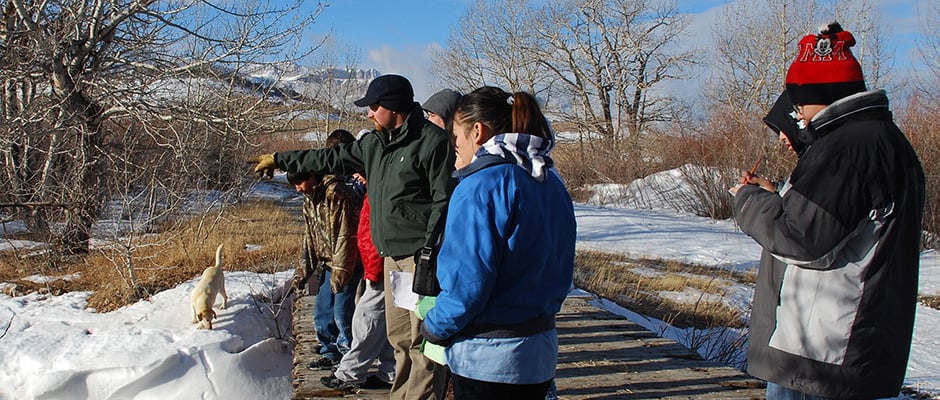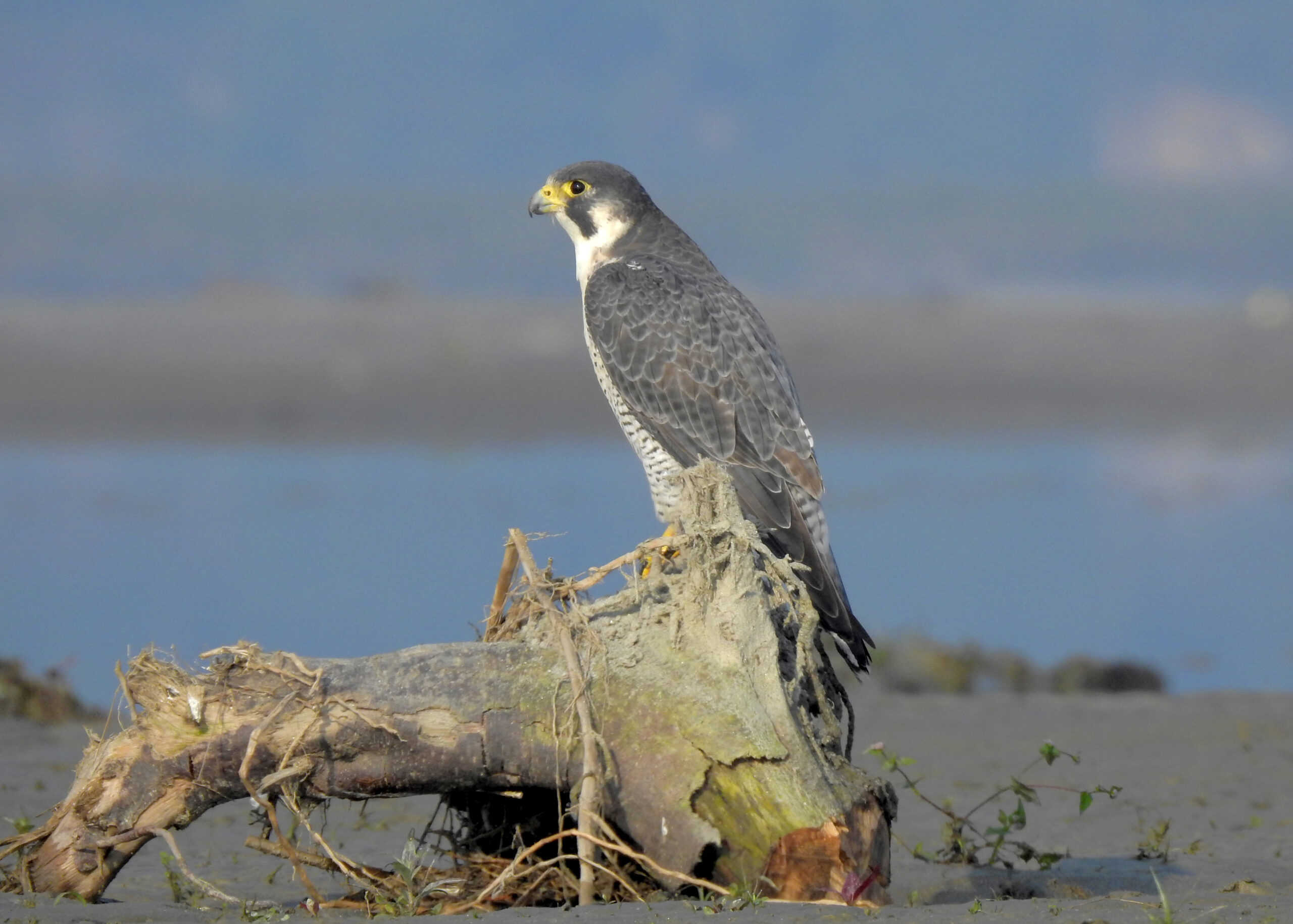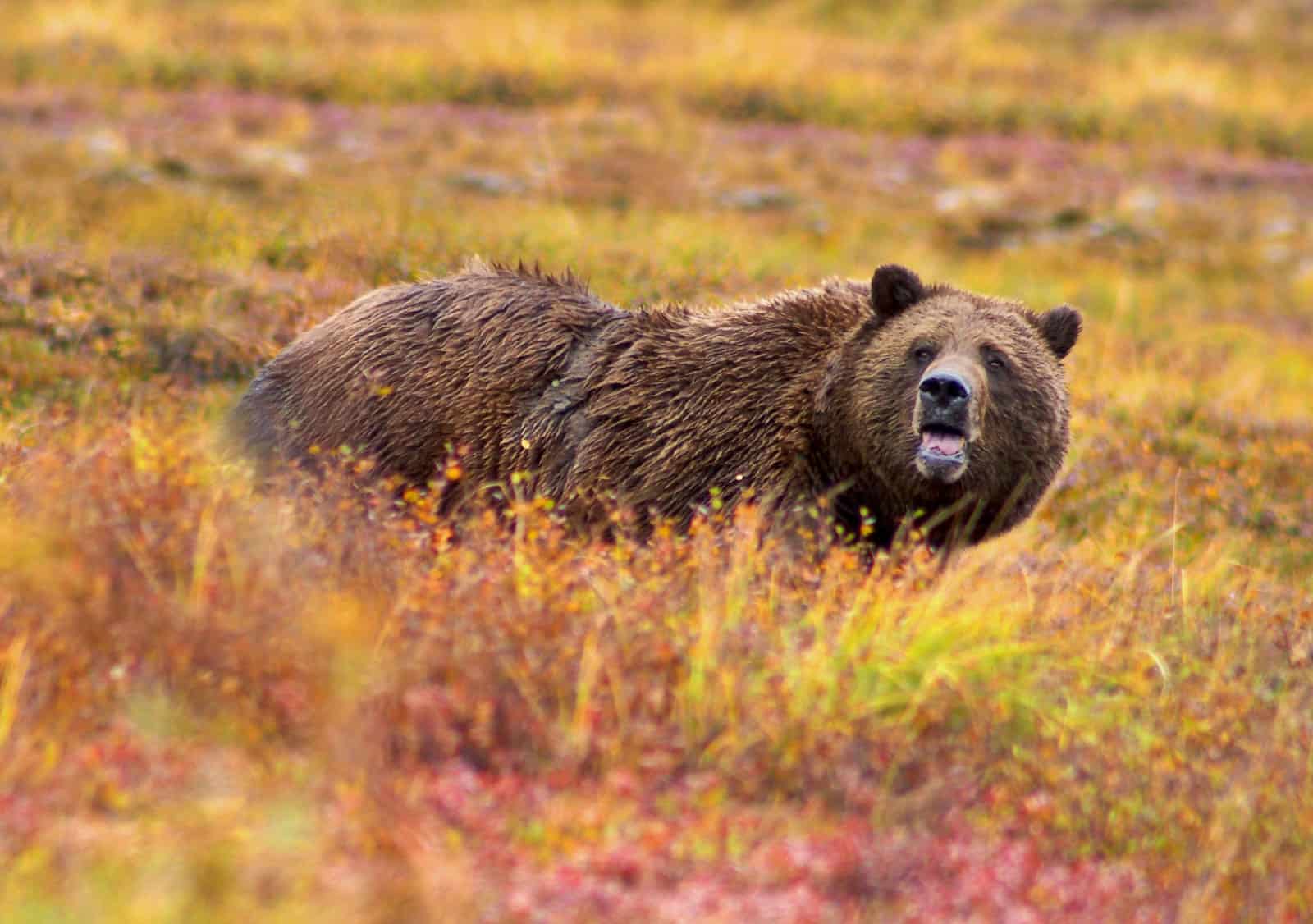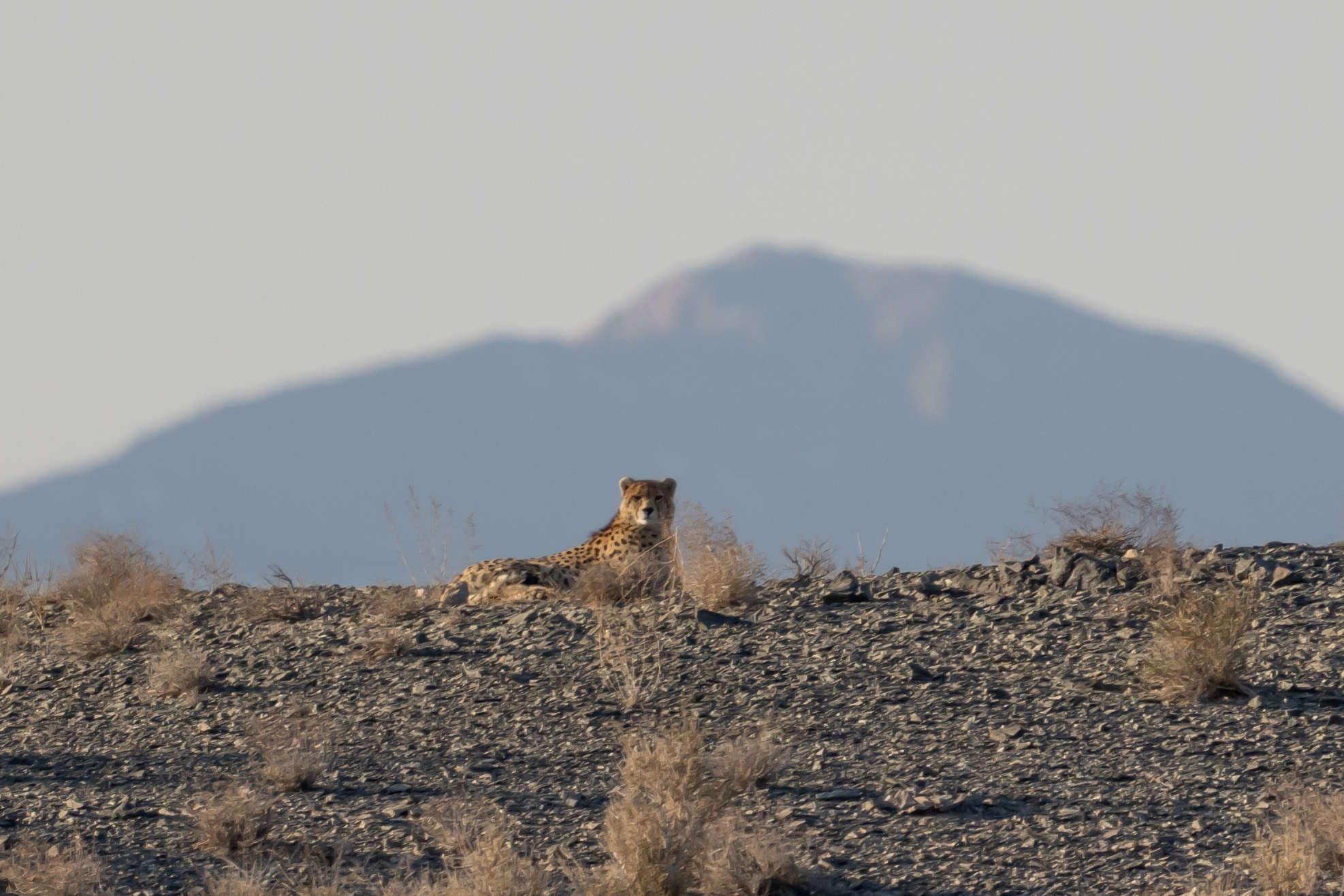Share this article
Paths to Becoming a Wildlifer
From the winter issue of The Wildlife Professional.
MAKING YOURSELF MARKETABLE FOR THE WILDLIFE PROFESSION
As professors in university wildlife departments, we often receive phone calls from prospective employers — state and federal wildlife agencies, natural-resource NGOs, or private landowners — seeking students as paid or volunteer interns to help with research or management on ranches, forests, wetlands, or other habitat types. For each inquiry we ask what qualifications the employer desires, such as an undergraduate or graduate degree, specific work experience, or personal character attributes. We then attempt to match the best qualified student with the employer.
With more than 70 years of combined experience as wildlife professionals and instructors, we’ve gained many insights into what employers want, and helped hundreds of students obtain employment in the wildlife profession. In fact, we view this duty as part of our job, which is to educate future generations of wildlife biologists and prepare students to be marketable for employment. But what makes them marketable?
We feel that this question is so important that we’re co-authoring a book on the subject, scheduled for joint publication by Johns Hopkins University Press and The Wildlife Society (TWS) in 2016. What follows is a preview of what we’ve learned over the years about the qualities employers look for in potential employees, and what students can do to meet those needs.
New Skills, Old Values
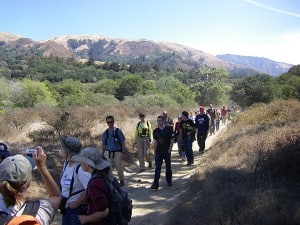
Armed with binoculars and cameras, student members of The Wildlife Society head out on a bird watching tour at Andrew Molera State Park in California’s scenic Big Sur. The field trip — organized as part of The Wildlife Society’s 16th Annual Conference in Monterey — highlighted ongoing condor recovery efforts in the region and offered students insight into bird banding and mist netting.
Image Credit: The Wildlife Society
You’ve heard the expression, “The more things change, the more they stay the same.” To some extent this applies to professional wildlife management and conservation, where there’s no substitute for fundamentals. It’s true that as technology improves, more employers require expertise in data processing, GIS and GPS systems, aerial or remote imaging, and social networking skills. However, most employers of all types continue to ask for the same traits in employees that have been valued for decades.
Topping their list of essentials is a solid education in wildlife. Though many part-time and seasonal technician and ranch-hand jobs may not require a college degree, full-time employment as a biologist or manager generally does require at least a Bachelor of Science, and often there’s a preference for a graduate-level degree. Students who want to obtain a thorough education in wildlife will find excellent guidance in the curriculum required for certification by TWS. This includes:
- General courses in wildlife management, zoology, ecology, and physical science
- Wildlife biology courses including either mammalogy, ornithology, or herpetology
- Botany courses including plant taxonomy
- Wildlife policy, administration, or law enforcement
- Quantitative sciences such as statistics, modeling, sampling methods, or advanced math (calculus, biometrics, regression analysis)
- Communications (composition, public speaking).
In addition to the basics, employers expect students to be well-versed in ecological theory and wildlife species management, with a strong understanding of human dimensions and well-developed written and oral communication skills. They also expect new graduates to understand the National Environmental Policy Act, policy development, and the North American Model of Wildlife Conservation. Beyond these book smarts, employers want new hires to be competent in the field, with experience performing a variety of techniques with the major species of their concern. Finally, employers want employees who are connected to others in the profession, which can often be achieved by attending student and professional meetings of TWS and other wildlife organizations.
We have found that new graduates often believe that if they possess the majority of these attributes, then they are highly marketable within the wildlife profession. That’s largely true, but it’s worth digging deeper to explore what really gives potential hires an edge.
Making the Grade
We have an on-going debate with our students about the importance of grade point average (GPA) in gaining employment. In our experience, a GPA of 3.0 or better is needed to secure a permanent position in the wildlife profession because it demonstrates professional competency to employers. Consider this: would you have confidence in a medical doctor who graduated at the bottom of his class, or would you prefer a doctor who earned high marks in school? If you answered the latter, then why should the wildlife profession expect any less?
A high GPA also demonstrates your dedication to the profession and shows that you set a high standard for yourself — traits that future employers assume will continue in the workplace. And students who plan to continue with higher education should consider that most graduate-level wildlife programs in the United States have a minimum GPA requirement of 3.0 for admission. Professors assume that students who maintained a 3.0 or higher GPA as undergraduates will likely continue to perform at the same level as graduate students, while students with lower GPAs may be seen as not likely to be successful in graduate school.
Some of you may feel you’re not interested in attending graduate school. But before you make such a decision, consider the experience of Josh (his real name and a true story, though Josh and most other individuals named in this article prefer to remain anonymous). Josh was an average student who graduated in the 1990s and was hired by a state wildlife agency. After 10 years of service, he noticed that several interns he trained eventually became his boss. The difference was that the interns had obtained graduate degrees. Josh decided he wanted to do the same so he could advance into higher positions within the agency. Unfortunately, Josh discovered that his 2.4 GPA as an undergraduate prevented him from admission into a graduate program, so he was destined to remain in his same job for the remainder of his wildlife career. Though he hadn’t realized it when he was an undergrad, his low grades were going to affect the rest of his life.
So our advice to students is to hit the books and keep your mind open to the possibility, one day, of attending graduate school. Employers do consider grades, and GPA matters.
No Substitute for Experience

Andrea Heydlauff, vice president of Panthera, takes a break from shooting a film about children in the Brazilian Pantanal who live on a conservation ranch with wild jaguars. Heydlauff became interested in working with wildlife soon after college.
Image Credit: Gabe DeLoach/Panthera
Another attribute important to employers is hands-on experience. Employers expect new hires to have field experience with a variety of techniques and species, so it’s wise to acquire as much experience as possible while you’re an undergraduate. Attend all potential field trips offered in your classes. Go to workshops and conferences when possible. Volunteer your time to assist professors and graduate students with their research. By doing so you are investing in yourself and your future — and there may be money in the system to help you along the way.
University research grants often include money to pay for technician assistance. As professors, we typically get this assistance by hiring undergraduates within our wildlife programs. It’s also common practice to hire students who have volunteered their time in the past because we know the quality of their work, their dependability, and their personality. If all of these attributes are positive, we prefer to hire these known quantities rather than a person of unknown abilities.
Beyond volunteering, it’s smart to acquire as wide a variety of experiences as possible because you never know how or where such skills may prove useful. For example, during an interview with the U.S. Fish and Wildlife Service, one of our students was asked if he had any wood-working experience. Though he didn’t feel qualified to say “yes,” the student then remembered that once, as a member of his university’s student chapter of TWS, he had helped make duck nest boxes. As it turned out, that was exactly what the employer wanted the student to do, and the student got the job. Never think an experience is unimportant, and obtain all types of experience, including animal and plant work, habitat manipulation, policy development, and public interactions. You never know when an experience may be the key to a job.
This holds true even for work in which you have little interest. For example, when Justin was an undergraduate, he wanted to work solely with white-tailed deer: if it didn’t have antlers, he wasn’t interested. However, Justin did well in his ornithology class and became well-versed in the birds of southern Texas. This skill served him well when he landed an internship on a ranch where he led wildlife tours that included spotting birds. He did such a good job that Justin was hired as a permanent employee on the ranch, where he was able to demonstrate his knowledge and desire to work with deer. Today, Justin is the head biologist of a 300,000-plus-acre wildlife enterprise where he works with white-tailed deer daily.
Character Matters
While obtaining experience as an undergraduate, you also will be demonstrating critical character attributes such as responsibility and dependability, punctuality, time management, and good judgment. Such qualities aren’t optional; employers demand them. They need people they can count on, and people who can get the job done well and on time. Such a work ethic will be noticed by professors and employers, and will result in excellent reference letters when it’s time to move up in your career.
Case in point: Lance was an undergraduate research assistant who helped on numerous graduate-student projects. He did high-quality work and was extremely honest, always admitting if he made an error and ready to rectify the problem. He showed up to work on time, or called if he was running even a few minutes late. After a while, supervisors knew they could depend on Lance and his quality of work. This is the type of employee that everyone should strive to become — one who is competent, dependable, and completely trustworthy. Needless to say, when Lance graduated he received an excellent reference letter praising his integrity.
Keep it Positive
A positive attitude is another intangible quality often sought by employers. We have both conducted considerable research in harsh desert environments of the U.S. Southwest, where summer heat can often exceed 110 degrees Fahrenheit and humidity can top 90 percent. Beyond such physical trials, field biologists in that region also may have to contend with threats involving illegal immigration and drug runners. A person who can keep a positive attitude and sense of humor under such stressful conditions is a welcome member of any team.
Projecting a positive image also is important because wildlife professionals are often in the public eye, so the image you project may reflect on both you and your organization. This extends to your online image in this age of Facebook, a platform that has probably damaged young biologists’ careers more than it has helped their social lives.
We know of one young woman, for example, who was completing her final semester as an undergraduate wildlife major with a 3.6 GPA, a variety of animal and habitat-manipulation experiences, and solid references — all strong qualifications for a job. A state wildlife agency was considering hiring her as a biologist. As part of their background check, the agency pulled up her Facebook page and saw she had posted numerous photographs of herself drinking alcohol with friends. Because the position required the use of the agency’s trucks and boats, she was perceived as a liability threat and passed by for the job. When she learned she lost the job due to her Facebook page, she removed the photographs, but the damage had been done. Like it or not, public forums like Facebook are fair game for employers, so be sure to project a professional image if you want to be taken seriously.
Leave Your Comfort Zone
In a competitive job market like ours, you may need to venture far beyond familiar turf to launch your career. That was certainly true for Veronica, who was born and raised in southern Texas and had no desire to leave it, let alone enter Yankee territory (anything north of the Texas border). Like many new professionals, Veronica wanted to work close to home, and she hoped for a job as a biologist with the Natural Resources Conservation Service (NRCS) upon graduation. Half her wish came true when NRCS offered her a job, but it was in South Dakota, about 1,000 miles to the north. Veronica was reluctant, but decided to give it a try. Today, 10 years later, she has not only survived crossing the Texas border (and survived ten South Dakota winters), but she has built a successful career as a range specialist. The message here is: keep your mind — and your options — open.
Dream Big
Sometimes students take circuitous paths toward wildlife careers, with detours that lead to unexpected rewards. We know of one student, Andrea Heydlauff, who, after earning an undergraduate degree in English literature, wanted to work with wildlife abroad. She was so impressive and dedicated in her drive that she completed most of the additional classes needed for certification by TWS and was accepted as a master’s student at the University of Arizona, where she began working with ranchers on elk and livestock issues. Excelling in both her work and her studies, she earned her M.S. in wildlife science and soon landed a Conservation Education Fellowship at the Wildlife Conservation Society (WCS), where she taught kids at the Bronx Zoo.
At first she felt out of place as one of the only Fellows without biological training, but she stuck with it. She was hired full-time by WCS’s International Division and eventually became colleagues with such notable biologists as George Schaller and Alan Rabinowitz. Andrea worked on the Great Cats Program and the Tiger Program for WCS, and now serves as the Vice President for Panthera, a global organization dedicated to conserving the 38 species of wild cats. To top it off, Andrea recently won awards for best children’s wildlife film from both the Montana International Film Fest and Wildlife Roscars in South Africa for “My Pantanal,” her film about people living with jaguars in Brazil.
Andrea’s story emphasizes two important points. First, some “non-traditional” students such as English literature majors are worth taking a chance on if they have the drive, determination, and dedication to obtain the classes and experiences needed for a successful career in wildlife. The second related point is that if you want to obtain a career in wildlife and do not have the credentials — get to work. You can do it!
All this brings us back to basics: hard work, integrity, openness to new experiences, and determination can pave a path to success in the wildlife field, and in life.
Header Image:
On a cold winter’s day in 2010, John Rappold, ranch manager of the Theodore Roosevelt Memorial Ranch in Dupuyer, Montana discusses wildlife management with 8th grade students as part of the Boone and Crockett Club’s Lee and Penny Anderson Conservation Education Program. The program provides hands-on outdoor education opportunities for children and adults from across the United States.
Image Credit: Bethann G. Merkle, commnatural.com



